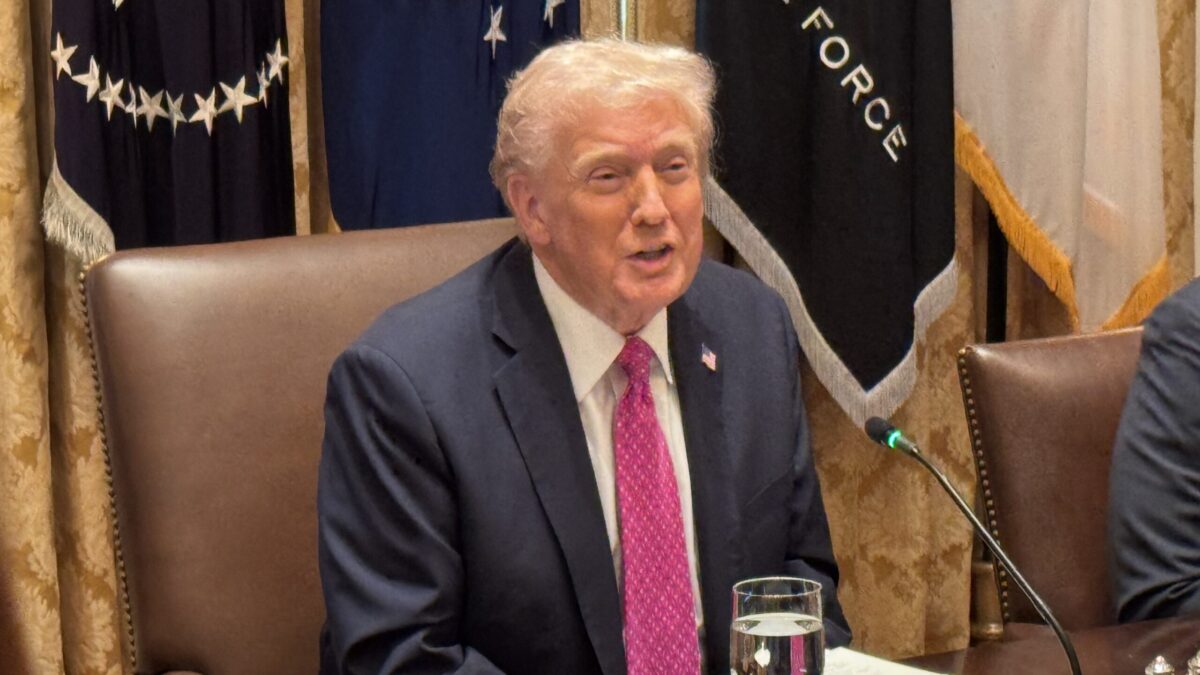
You don’t have to be a conservative to see that Mary Grabar’s recent article detailing her experiences as an adjunct professor is one of the most important around on the real trends in higher education. The problem it displays in a quite personal way is the proletarianization of the faculty.
Why is that happening? Adjuncts are more compliant about teaching off scripts and bending to a college administration’s agenda. Their instruction is also cheaper, but maybe that’s not the main concern. It’s better still when adjuncts teach online, because they can be even more scripted. Educational can be most efficiently keyed to “best practices” when the instructor’s personal contribution or “mental labor” is reduced to as close to nothing as possible.
As Marx (and libertarian economists who rail against the minimum wage) explains, those who do little to no mental labor should be paid subsistence. Adjuncts, of course, are typically not even paid that; they’re paid piecemeal for their work and have no benefits—no health care, no security, and no respect. (It’s not true that adjuncts’ fear is about to turn into hatred, and revolution is around the corner. Despite it all, they like their work, and they could always just get other jobs. Marx’s didn’t quite predict the reserve army of adjuncts on which our colleges increasingly depend, and we need better studies to explain the psychology of the false consciousness of the adjunct.)
Adjuncts Are How Administrators Are Erasing Tenure
Some conservatives, such as Wisconsin Gov. Scott Walker, say that the main problem in American higher education today is tenured faculty don’t teach enough. It would be better if their lazy self-indulgence could be better controlled by more accountable administrators. Tenure, from this view, is a kind of union, and “faculty governance” is collective bargaining. It would be better if administrators could get closer to the “right-to-fire” situation found our more entrepreneurial states.
What the union-taming governor wants, he doesn’t understand, the administrators have already been achieving. In the industrial world, the war against unions is suddenly becoming more aggressive and more effective because unions can’t deliver the goods given the dynamic realities of twenty-first-century global competition. The same is true of the war against tenure. Tenure is withering away, and astute administrators know better than to launch a frontal assault that would result in really bad public relations and many unnecessary casualties.
The truth is that the percentage of tenured faculty is rapidly diminishing. The tenured and those on a “tenure track” are still a fairly unoppressed and, I admit, often fairly clueless minority of the “instructional workforce.” There are doubtless good reasons why, at some places, tenured and tenure-track faculty should teach more. It would be better if more students had their “personal touch,” just as it would be better if professors graded their students’ papers themselves at research institutions. But, given how cheap adjuncts are, it’s a big mistake to believe that tenured professors taking on an additional class or two would be a significant savings. Often, administrators would rather they not teach more.
At some places, at least, the administrations appear to be buying off tenured faculty with low teaching loads and various research perks. That incentivizes them to be compliant with the transfer of instruction to adjuncts and other temporary faculty. It also allows them to accept degraded content, as “general education” requirements focused on the content and methods of the academic disciplines—such as history, literature, and philosophy—are replaced by those based on abstract and empty (or content-free) competencies.
Hollowing Out the College Curriculum
Tenured and tenure-track faculty often come from highly specialized research programs where, even in history and literature, the tendency is to more and more about less and less. There are also allegedly cutting edge approaches—such as neuroscience, “digital humanities,” rational-choice theory, and so forth—that take the researcher away from attending to the content that’s been the core of undergraduate instruction. Then there’s the pretension of “undergraduate research” (which originated in and make a lot more sense in the hard sciences) that it’s best for students to bypass the bookish acquisition of content about the perennial fundamental human issues and questions and get right down to making some cutting-edge marginal contribution.
All in all, it’s often not so hard to convince specialists to surrender concern for merely general education. Or at least to convince them that the imperatives of the marketplace and the increasingly intrusive accreditation process demand that the value of their disciplinary contributions be reconfigured in terms of competencies. That way, they’re lead to believe, they’ll be able to hang on to their curricular “turf.” The study of history (or philosophy or whatever) can be justified, after all, as deploying the skills of critical thinking, effective communication, and so forth. One problem, of course, is that those skills can be acquired more easily in other ways, ways that aren’t saddled with all that historical or philosophical content.
And when competencies displace the disciplines of liberal education, institutions tend to surrender the content-based distinctiveness that formed most of their educational mission. The biggest outrage in higher education right now, for example, is not this or that report of students or administrators whining about microaggressions or being insufficiently trigger-warned. It’s that Notre Dame may be about to surrender its requirement that all students take courses in philosophy and theology, replacing this with competency-based goals. What distinguishes or ought to distinguish Notre Dame is the seriousness by which it treats philosophy and theology as disciplines indispensable for all highly educated Catholic men and women, or not the provision of a Catholic lifestyle or other form of “branding” in accord with Catholic values.
Style Is Eroding Because the Substance Has Gone
As institutions surrender their liberal arts substance (while sometimes retaining their classy liberal-arts brand), their educational goals become pretty much identical. Lists of competencies always seem to me vague and rather random, but they still seem to turn out about the same everywhere. Their measurability usually depends on multiple-choice questions and the sham exactitude of points distributed on rubrics, and the data generally gets its veneer of objectivity through trying to aim at sometimes stunningly low and only seemingly solid goals.
Still, it’s easy to mock the earnest redundancy of the competency phrases themselves. “Critical thinking”—well, if it wasn’t critical, it wouldn’t be thinking. “Effective communication”—well, if it wasn’t effective, it wouldn’t be communication.
In any case, what’s being denied is that the dignity of thinking and communicating must have something to do with what is being thought or communicated. Still, it’s just not true that the same methods of thought and communication can simply be applied in all circumstances. How to think about what or who is a man or woman is way different from figuring out how to rotate your tires or even maximize your productivity. Communicating information is different from “winning friends and influencing people” (or persuasion and manipulation) and communicating through irony or humor or verse—or, for that manner, through the parables of Revelations or the dialogues of Plato.
The forms of communication that distinguish the great or even good books that provide most of the content of liberal education elude measurable outcomes, and it’s not immediately obvious they have much value in the marketplace. (Actually, the kind of insight they provide can be invaluable in marketing, as anyone who’s watched an episode of “Mad Men” or read one of those eerie, philosophical, uncannily effective pitches of Don Draper knows. But it’s not, to repeat, obvious to the administrative “stakeholders” as a readily measurable as a form of knowing. And the administrators would reply: “Well, sure that Don’s a genius, but he’s so damn unreliable. We don’t want professors like that!”)
From Factory K-12 to Factory Higher Ed
As the low but seemingly solid goal of competency becomes about the same everywhere, the delivery of education can become less personal or quirky and standardized according to quantitatively validated best practices. Courses can become more scripted, and then delivery can be increasingly conducted by screens. So the “intellectual labor” of college administrators—the number of whom are “bloating” and the perks of whom (at the highest level) are coming to resemble those of corporate CEOs—is directed similarly to other sectors of the economy.
What’s going on, for example, in the Amazon warehouse or in large chains such as Panera Bread, is going on in our campuses. The idea of “competency” being enforced the accrediting agencies—which are basically run by administrators and follow a “class-based” administrative agenda—serves the goal of scripting instruction and then displacing actual instructors, as much as possible, by education delivered on-screen.
We all surely benefit from the relentless efficiency Amazon achieves by dispensing with the personal touch; the content of the book (given that Amazon sells about every book and other form of media there is) is not affected by its delivery system. All I want is the bleepin’ book as cheaply and quickly as possible. The same is a bit less true at Panera, where some attention is still given to the family atmosphere, so employees are allowed some personal spontaneity. (I’ve been treated to the stories about the lives of several of the service folks around the fireplace at my Panera home.) When it comes to higher education, the script and the screen might be “good enough” ways of delivery various forms of technical education, but they work in every way against the irreducibly personal agenda and diverse “modes of communication” of liberal education.
Those conservative reformers who say that what they really want is for our career liberal arts professors in classrooms filled with as many students as possible have a noble goal. It’s not mainly about saving money by getting full professors to teach more. The saving isn’t really there. If their reform is seriously personal—or, as we say these days, reform conservatism—then they should oppose every effort of our administrators to displace respected professors with proletarianized adjuncts, as well as to reduce, as far as possible, the place of the competency and the screen in figuring out the kind of general education—the kind of content-driven literacy—that is part of genuinely higher education. Respected professors, we conservatives should understand, turn out to be part of the indispensable content of higher education.
The trend I sketch here admits of more than a few exceptions in the still somewhat morally and intellectually diverse world of American higher education. There’s still the opportunity to choose a college where respected faculty teach almost all courses and an intellectually disciplined mission drives the curriculum. That’s the kind of diversity we should celebrate against all the forces of techno-standardization.









